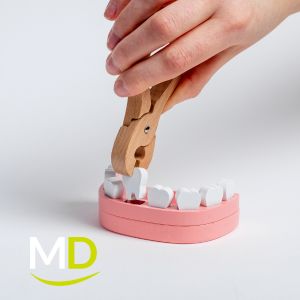What Not to Do After Wisdom Teeth Removal
Posted on October 27, 2023
The removal of wisdom teeth is a standard dental procedure that many individuals undergo. Although the surgical aspect is typically uncomplicated, the recovery phase can be challenging. Adhering to the post-operative guidance provided by your dentist in Woodbridge, oral surgeon or veneers dentist is essential to ensure a smooth healing process. Explore four actions to steer clear of after having your wisdom teeth extracted to minimize discomfort, reduce the chances of complications, and expedite recovery.
Skip Your Oral Care Routine
 Maintaining proper oral hygiene is critical both before and after wisdom teeth removal. However, some individuals mistakenly believe that refraining from brushing and flossing their teeth in the days immediately following the procedure is necessary to prevent disrupting the surgical site. This is a common misconception and can lead to more significant issues. While it's advised to avoid direct brushing of the extraction sites for the initial 24 hours, it's vital to continue maintaining overall oral hygiene by gently rinsing your mouth with warm salt water after the first day to keep the extraction sites clean. Failing to uphold proper oral care can result in infections, which can substantially impede the recovery process.
Maintaining proper oral hygiene is critical both before and after wisdom teeth removal. However, some individuals mistakenly believe that refraining from brushing and flossing their teeth in the days immediately following the procedure is necessary to prevent disrupting the surgical site. This is a common misconception and can lead to more significant issues. While it's advised to avoid direct brushing of the extraction sites for the initial 24 hours, it's vital to continue maintaining overall oral hygiene by gently rinsing your mouth with warm salt water after the first day to keep the extraction sites clean. Failing to uphold proper oral care can result in infections, which can substantially impede the recovery process.
Consuming Problematic Foods and Beverages
Following wisdom teeth extraction, the mouth will be tender, requiring a dietary adjustment. One of the most prevalent errors is the premature consumption of hot, spicy, or hard foods and beverages. These items can irritate the surgical sites, elevate discomfort, and delay the healing process. It is advisable to adhere to a soft diet for the initial days, which should include foods like yogurt, pudding, mashed potatoes, and soup. Steer clear of foods containing small seeds that might become lodged in the extraction sites, and avoid using straws, as the suction can dislodge blood clots, potentially leading to a painful condition known as dry socket.
Overexerting Yourself
Rest is a crucial element of post-wisdom teeth extraction recovery. Your body requires adequate time to recuperate, and overexertion can result in complications, such as excessive bleeding and delayed healing. During this period, avoid demanding activities like heavy lifting or intense exercise. Additionally, steer clear of bending over or activities that might increase blood flow to the head, which can lead to heightened swelling. By providing your body the necessary time to heal, you can significantly decrease the likelihood of complications and promote a smoother recovery.
Ignoring Pain Medication and Follow-up Appointments
Efficient pain management is a critical aspect of the recovery process following wisdom teeth removal. Typically, oral surgeons and even veneers dentists prescribe pain-relief medications to help patients cope with the discomfort. A common mistake is neglecting these medications due to the belief that one can endure the pain or concerns about potential side effects. Effective pain management is essential for both comfort and recovery, so it's important to follow the instructions of your local dentist in Woodbridge and take prescribed medications as directed. Missing scheduled follow-up appointments can also lead to complications. These appointments enable healthcare providers to monitor the progress of your healing and address any potential issues promptly. Failing to attend these follow-ups may result in untreated problems that could have been prevented or mitigated with timely intervention.
Follow the Advice of Mackenzie Dental Centre
The recovery phase following wisdom teeth extraction can be challenging, but by avoiding these typical pitfalls, you can promote a smoother healing process. Neglecting proper oral care, consuming problematic foods and beverages, overexerting yourself, and disregarding pain medication and follow-up appointments can all lead to complications and discomfort. Always follow your dentist's instructions at Mackenzie Dental Centre and do not hesitate to contact them if you have any questions or concerns during your recovery.

